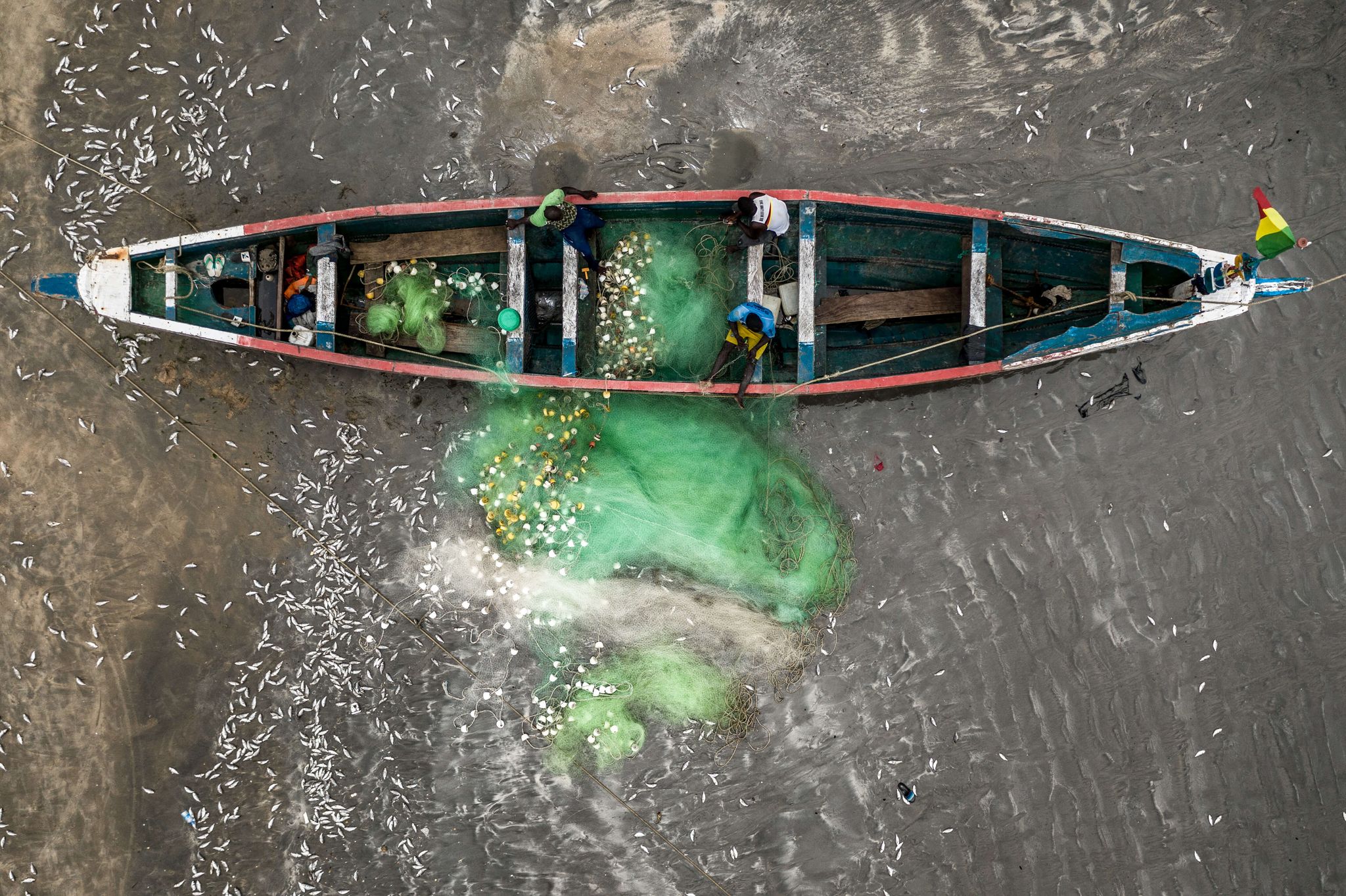The oceans are rapidly running out of fish. More than 90 percent of the world’s stocks are at or beyond the point of collapse. To slow down this problem, environmentalists pushed for fish farming, or aquaculture. The hope was that we might take fewer fish from the sea if we began growing them inland.
But not unlike big agro, the aquaculture industry scaled up in size and began looking for market efficiencies. To get their farmed fish to fatten faster and to sell sooner, the industry started feeding them high-protein pellets or powder called fishmeal, made from massive amounts of fish caught at sea. This was a colossal step backwards for ocean conservation since the very effort that was meant to slow marine depletion ended up accelerating it.
Now, at least 1/5 of all marine life pulled from the sea goes to feed other fish that are grown in pools inland or in nearshore pens. Granted, some forms of aquaculture such as farmed oysters, mussels, and other bivalve shellfish do not require fishmeal and do not bring the same sort of environmental problems that carnivorous and more profitable fish like shrimp, tuna and salmon do. For instance, to help a ranched tuna grow by one kilogram can require feeding it more than 40 kilograms of other fish pulled from the ocean.
Alas, the real price of fish is not what appears on the menu. The hidden costs of these unsustainable practices are distinctly expensive in the developing world where subsistence fish is routinely being used as fishmeal fodder. In episode 5 of The Outlaw Ocean Podcast, we visit Gunjur, a town of some 15,000 people, which sits on the Atlantic coastline of southern Gambia, the smallest country in mainland Africa. We take the listener for an offshore patrol where hundreds of foreign fishing boats trawl for fishmeal production, cratering the local food source and polluting the coastline.
The history of how we fish the open ocean is not just a tragedy of plenty now gone. It’s also a parable on the wastefulness of how we produce food, and few topics better illustrate this point than fishmeal. Aquaculture could be a source of food security, but not if it uses more fish than it produces. To explore this upside-down situation, listen here:
